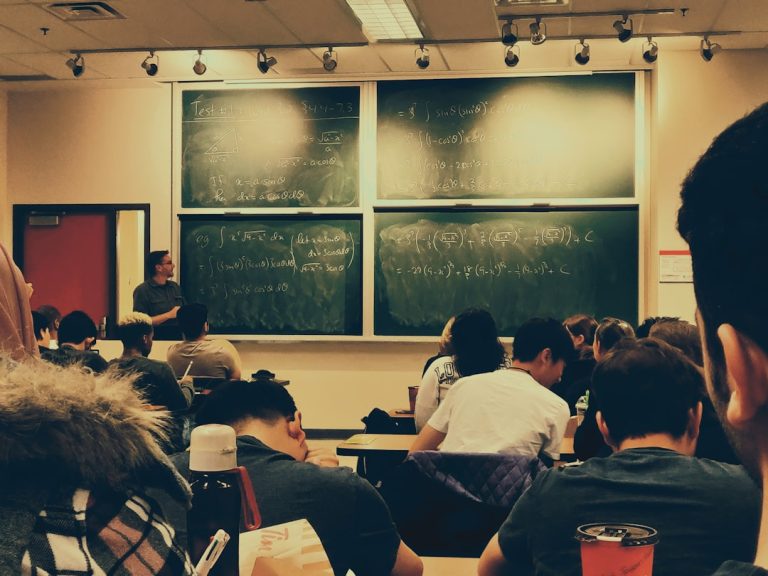
Health specialties teachers play a pivotal role in shaping the future of healthcare by educating the next generation of professionals in various health-related fields. These educators are responsible for imparting knowledge about health sciences, medical practices, and wellness strategies to students in high schools, vocational schools, and colleges. Their work is crucial not only for the academic development of students but also for the overall improvement of public health outcomes.
As the healthcare landscape continues to evolve, the demand for skilled educators who can effectively teach complex health topics has never been more significant. The responsibilities of health specialties teachers extend beyond traditional classroom instruction. They often engage in curriculum development, ensuring that the material is relevant and up-to-date with current healthcare practices and technologies.
Additionally, they may collaborate with healthcare professionals to provide students with real-world insights and experiences. This multifaceted role requires a deep understanding of both educational methodologies and the intricacies of the healthcare system, making it a unique and rewarding career path for those passionate about teaching and health.
Key Takeaways
- Health specialties teachers play a crucial role in educating and training future healthcare professionals.
- Educational requirements for health specialties teachers typically include a master’s or doctoral degree in a relevant field.
- The job outlook for health specialties teachers is favorable, with a competitive salary and opportunities for growth.
- Health specialties teachers need strong communication, organizational, and leadership skills, as well as a passion for teaching and mentoring students.
- While being a health specialties teacher can be rewarding, it also comes with challenges such as heavy workloads and the need to stay updated with the latest advancements in the field.
Educational Requirements for Health Specialties Teachers
Education Requirements
Most positions require at least a bachelor’s degree in a relevant field, such as health education, nursing, public health, or a related discipline. Some institutions may prefer candidates with a master’s degree, particularly for teaching at the college level or in specialized programs.
Teaching Certification and Licensure
In addition to formal education, aspiring health specialties teachers must often obtain teaching certification or licensure, which varies by state or country. This process usually involves passing specific examinations and completing a student-teaching internship.
Ongoing Professional Development
Furthermore, many states require ongoing professional development to maintain licensure, ensuring that educators stay current with advancements in healthcare and educational practices. This commitment to lifelong learning is essential in a field that is constantly evolving due to new research findings, technological innovations, and changes in healthcare policy.
Job Outlook and Salary for Health Specialties Teachers

The job outlook for health specialties teachers is generally positive, reflecting the growing emphasis on health education in schools and communities. According to the U.S. Bureau of Labor Statistics (BLS), employment opportunities for postsecondary teachers, including those specializing in health education, are expected to grow by about 12% from 2020 to 2030, which is faster than the average for all occupations.
This growth is driven by an increasing awareness of the importance of health literacy and preventive care, leading to greater demand for qualified educators in this field. In terms of salary, health specialties teachers can expect to earn competitive wages that vary based on factors such as location, level of education, and years of experience. As of May 2020, the median annual wage for postsecondary health specialties teachers was approximately $78,000.
However, those teaching at community colleges or high schools may earn less, while those in university settings or specialized programs may command higher salaries.
Skills and Qualities Needed for Health Specialties Teachers
| Skill/Quality | Description |
|---|---|
| Communication | Ability to effectively convey information to students and colleagues. |
| Patience | Capacity to remain calm and understanding when working with students. |
| Adaptability | Flexibility to adjust teaching methods to meet the needs of diverse students. |
| Expertise | In-depth knowledge of health specialties and related subjects. |
| Empathy | Ability to understand and relate to the experiences and feelings of students. |
| Organization | Capability to plan and manage teaching materials and curriculum effectively. |
Successful health specialties teachers possess a unique blend of skills and qualities that enable them to effectively educate their students. Strong communication skills are paramount; educators must be able to convey complex health concepts in an accessible manner while engaging students in meaningful discussions. This includes not only verbal communication but also the ability to create clear and informative written materials that enhance learning.
Moreover, effective health specialties teachers demonstrate adaptability and creativity in their teaching methods. Given the diverse backgrounds and learning styles of students, these educators must be able to modify their approaches to meet individual needs. Incorporating technology into lessons—such as using online resources, simulations, or interactive activities—can significantly enhance student engagement and understanding.
Additionally, a passion for health and wellness is essential; teachers who genuinely care about their subject matter inspire students to develop similar interests and values.
Advantages and Challenges of Being a Health Specialties Teacher
Being a health specialties teacher comes with numerous advantages that make it an appealing career choice for many individuals. One significant benefit is the opportunity to make a positive impact on students’ lives by equipping them with essential knowledge about health and wellness. Educators in this field often find fulfillment in knowing that they are contributing to the development of future healthcare professionals who will ultimately serve their communities.
However, like any profession, there are challenges associated with being a health specialties teacher. One notable challenge is keeping up with the rapid advancements in healthcare knowledge and technology. The field is constantly evolving, requiring educators to engage in continuous professional development to remain effective in their teaching roles.
Additionally, managing classroom dynamics can be demanding; teachers must navigate varying levels of student motivation and engagement while addressing diverse learning needs.
Specializations within Health Specialties Teaching

Health specialties teaching encompasses a wide range of specializations that allow educators to focus on specific areas of interest or expertise. Some may choose to specialize in areas such as nutrition education, where they teach students about dietary practices and the importance of healthy eating habits. Others might focus on public health topics, including disease prevention strategies and community health initiatives.
Another specialization within this field is nursing education, where teachers prepare students for careers as registered nurses or licensed practical nurses. This often involves hands-on training in clinical settings alongside theoretical instruction. Additionally, some educators may concentrate on mental health education, addressing topics such as mental illness awareness, coping strategies, and the importance of mental well-being.
Each specialization requires a unique set of knowledge and skills, allowing educators to tailor their teaching to meet specific student needs and interests.
Professional Development Opportunities for Health Specialties Teachers
Professional development is crucial for health specialties teachers who wish to stay current with trends in healthcare education and improve their teaching practices. Numerous opportunities exist for educators to enhance their skills and knowledge through workshops, conferences, and online courses. Organizations such as the American Association for Health Education (AAHE) offer resources and training programs designed specifically for health educators.
Additionally, many universities provide continuing education courses that focus on emerging topics in health sciences or innovative teaching methodologies. Networking with other professionals in the field can also be beneficial; attending conferences allows educators to share best practices and learn from one another’s experiences. Engaging in research projects or collaborating with healthcare organizations can further enrich an educator’s understanding of real-world applications of health education.
Conclusion and Resources for Aspiring Health Specialties Teachers
For those considering a career as a health specialties teacher, numerous resources are available to support their journey into this rewarding profession. Professional organizations such as the Society of Public Health Educators (SOPHE) provide valuable information on certification requirements, job opportunities, and professional development options. Online platforms like Coursera or edX offer courses related to health education that can enhance an educator’s qualifications.
Furthermore, aspiring teachers should seek mentorship from experienced professionals in the field who can provide guidance on navigating the complexities of health education. Engaging with local educational institutions or community organizations can also provide insights into the specific needs of students within different populations. By leveraging these resources and committing to ongoing learning, individuals can successfully embark on a fulfilling career as a health specialties teacher dedicated to improving public health through education.
If you are interested in learning more about careers in the USA, you may want to check out the article “Sample Page” on careersintheusa.com. This website provides valuable information on various career paths, including Health Specialties Teachers, Postsecondary. Additionally, you can explore their blog post titled “Hello World” at careersintheusa.com for more insights into the job market and opportunities in the field of health specialties education.
FAQs
What is the role of a Health Specialties Teacher, Postsecondary?
Health Specialties Teachers, Postsecondary are responsible for teaching courses in health specialties, such as nursing, dentistry, or veterinary medicine, at the postsecondary level. They develop curriculum, conduct lectures, and assess student learning.
What are the educational requirements to become a Health Specialties Teacher, Postsecondary?
To become a Health Specialties Teacher, Postsecondary, individuals typically need a doctoral degree in the field they wish to teach, such as nursing, dentistry, or veterinary medicine. Some positions may require a master’s degree, particularly for teaching at community colleges or technical schools.
What skills are important for a Health Specialties Teacher, Postsecondary?
Important skills for Health Specialties Teachers, Postsecondary include strong communication and interpersonal skills, the ability to develop and deliver effective curriculum, and a deep understanding of the specific health specialty they are teaching.
What is the job outlook for Health Specialties Teachers, Postsecondary?
According to the U.S. Bureau of Labor Statistics, the employment of postsecondary teachers, including health specialties teachers, is projected to grow 9 percent from 2020 to 2030, which is about as fast as the average for all occupations.
What is the average salary for Health Specialties Teachers, Postsecondary?
According to the U.S. Bureau of Labor Statistics, the median annual wage for postsecondary health specialties teachers was $99,090 in May 2020. The lowest 10 percent earned less than $40,480, and the highest 10 percent earned more than $208,000.






